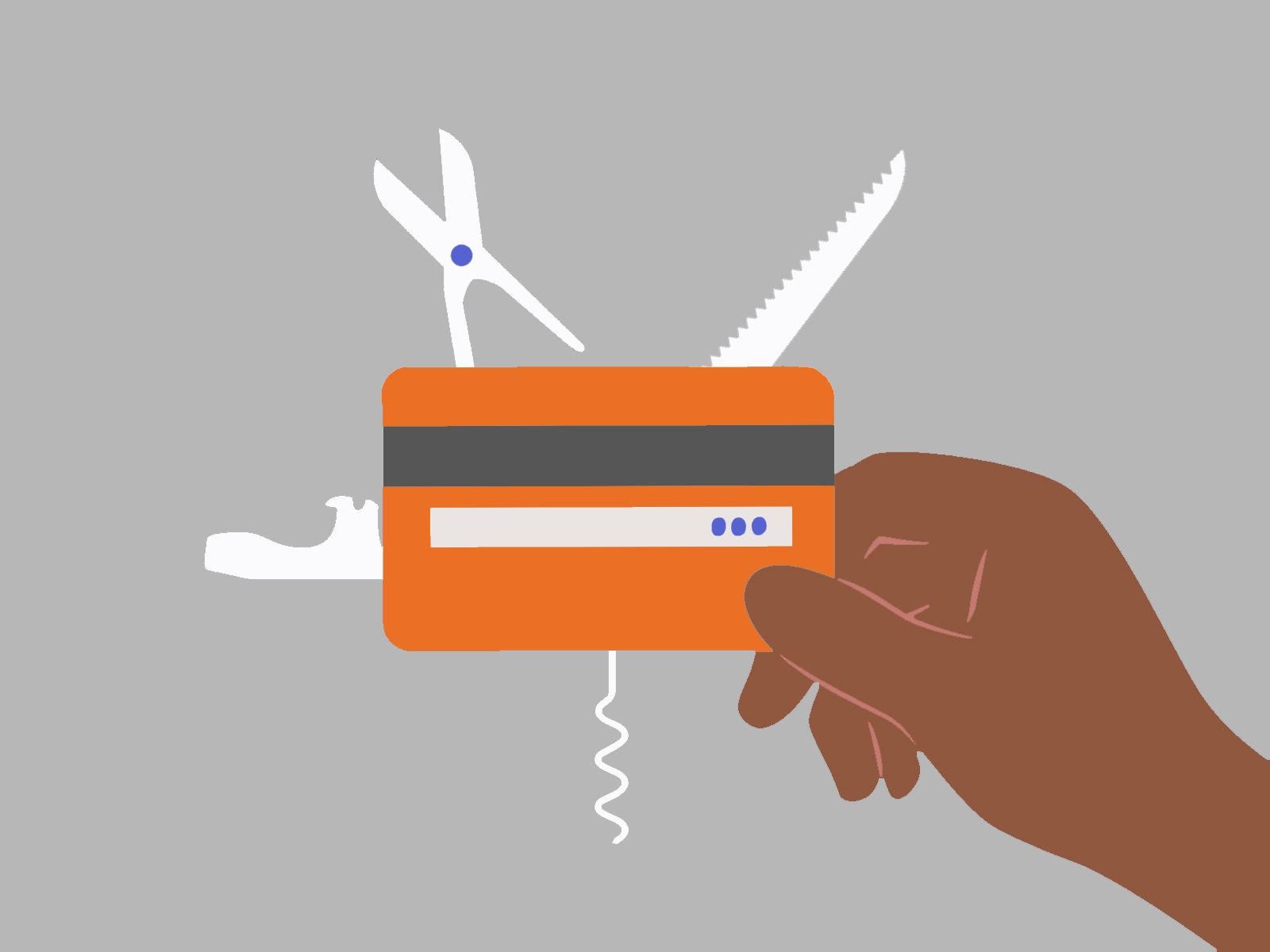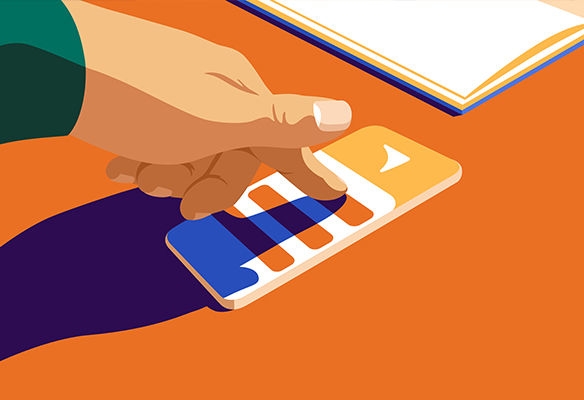Five tips to improve your credit score | Tangerine
Your credit score controls more of your life than you may realize. Here's how you can find out your score and improve it or keep it healthy.
If you worry about money, you're far from alone. According to Scotiabank's fourth annual Worry Poll, Canadians worry about their finances for an average of 15 hours a week. (Up from 10 hours a week in 2022). When you're overwhelmed by financial stress, don't forget about your credit score. It's important to keep that number on your radar and make sure that you're watching your payments so that no new problems arise.
Your credit score is a three-digit number, and it can control more of your life than you may realize. So, do you know your score? Have you reviewed it recently? Here's how you can get your score and improve it or keep it healthy.
“Having a good credit score doesn't just help you get a line of credit, car loan, bank loan or mortgage, but it can also help you get better, more competitive insurance rates, better interest rates on any loans you qualify for, a cell phone contract, a job offer or a rental apartment, says Laurie Campbell, former CEO of Credit Canada Debt Solutions. “Potential employers can look into your credit report, as well as potential landlords."
What's considered a good credit score?
In Canada, credit scores range from 300 to 900. The higher the score, the more likely an individual is to pay their bills on time.
According to Equifax, many lenders would consider you a lower-risk borrower if your score is between 660 to 900 (your score would be considered "good," "very good," or "excellent" in that range.) If your score is under 660, you might not be able to get the best loan terms, and if your score is “poor” or below 560, you might have a hard time getting credit in the first place. But, since every lender has different rules, you’ll have to investigate each credit product to find out what you qualify for.
How do you check your score?
Since the COVID-19 pandemic, two of the major credit reporting agencies in Canada, Equifax and TransUnion, now offer consumers access to their credit scores and reports for free online. It's a good idea to check your credit reports and scores at least once a year to ensure accuracy. Generally speaking, both of your reports and scores should be identical, but it's possible that they may not be. This might happen if something incorrect has been reported on one or both of your reports.
The good news is that most banks now offer your score and/or report for free through their mobile apps. However, keep in mind that your bank will only offer you one score and report — either Equifax or TransUnion — so you may want to go to a little more effort and check both. Note: checking your score won't hurt it!
And be mindful of the free credit score offers out there from credit-building apps and fintech companies. There are no free lunches in life. These companies may try to entice you with a free score to sell you on their high-interest-rate loans. While these products are not necessarily bad, you'd be giving up your personal information, and they will probably try to sell you their products.
How to raise your credit score
Your credit score is fluid. For better or worse, your payments and credit activity each month affect your score. But with dedication and attention, you can increase your score and keep it as high as possible.
An excellent first step in establishing a solid credit history is to get a credit card in your name and use it occasionally, being sure to make payments on time. “Even as little as six months of good payment behaviour can go a long way to developing a good credit score," says Julie Kuzmic of Equifax Canada Co.
Tips for improving your credit score
Tip 1: Pay all your bills on time. That includes rent, mortgage payments, utilities, credit cards, taxes and more. And a minimum payment made on time is better than paying off the balance in full but late.
Tip 2: Review your credit report with Equifax and TransUnion at least once a year. Both reporting agencies are legally obligated to provide you with a free credit score every 12 months. If you find a discrepancy or error on either of your credit files, you must contact the credit reporting agency to correct it. Note that sometimes mistakes on your credit file may have been reported in error, and other times it may be fraudulent activity. In either case, visit Equifax and TransUnion to dispute the incorrect activity.
Tip 3: If you've missed payments, get current and stay current. Even making minimum payments is better than no payments.
Tip 4: Don't apply for too much new credit in a short amount of time. Only apply for new credit and open new accounts as needed. And you may want to think twice before applying for department store cards — they generally affect your score adversely. They also typically carry a whopping interest rate.
Tip 5: Sometimes things end up in collections, like a cable bill or old phone plan you thought you closed out, but a few dollars remain. Regardless of the amount, having anything in collections will hurt your score. Your report can show if this has happened to you. Remedy it by paying off the existing amount to remove it from collections.
The bottom line is to use your credit regularly and pay your bills on time, every time. Ideally, you should pay your credit card balance in full each month. This shows lenders you're managing your credit responsibly. Over time, this will have a positive impact on your credit score.









